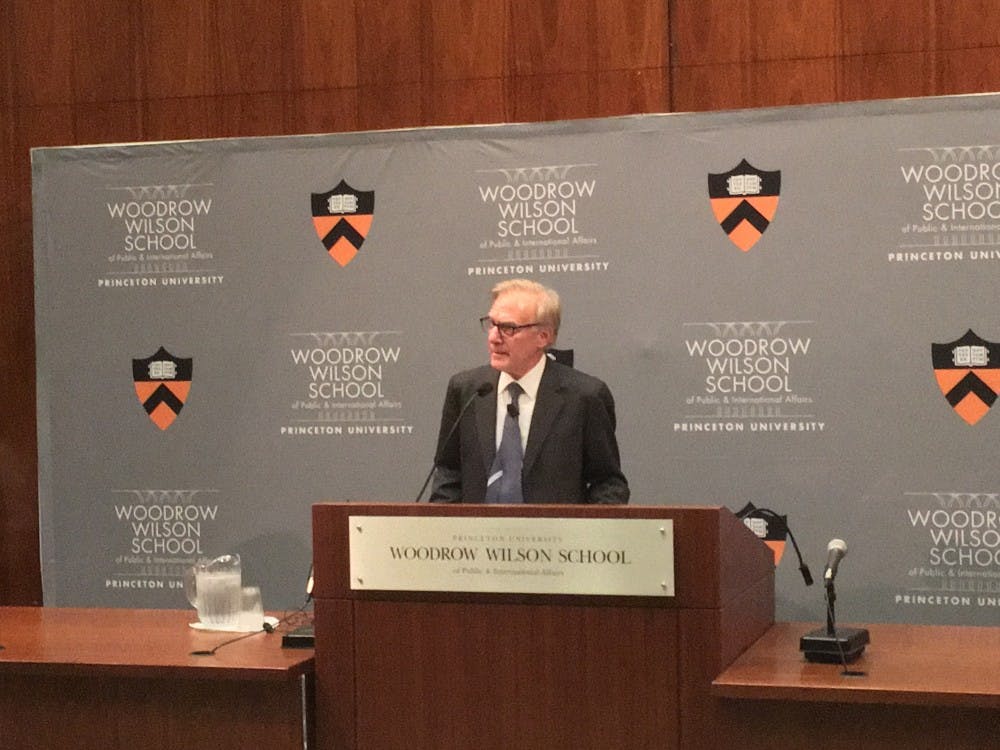Washington Post foreign affairs columnist and bestselling author David Ignatius discussed growing aggression at the boundary of foreign policy and journalism in a talk Wednesday.
When Ignatius, who had covered the Department of Justice, the CIA, and the U.S. Senate, was sent to the Middle East despite having no experience with the region, he felt protected by an “invisible white flag” that allowed journalists to safely travel the world and tell stories that needed to be told.
He said this is no longer true. Now, he feels journalists are seen as superfluous and their presence faces retaliation from locals.
“During that period, I experienced a kind of journalism that I sadly think is disappearing,” Ignatius said. He explained how now more than ever, people are able to tell their own stories without the involvement of traditional news outlets.
According to Ignatius, The Wall Street Journal and The Associated Press are increasingly irrelevant.
He cited James Foley, the U.S. journalist who in 2014 became the first U.S. citizen killed by ISIS, as an early sign of a more dangerous time.
Ignatius, who has recently covered the Trump administration’s foreign policy, said he sees recent executive decisions as a harbinger of even more problems with the Middle East.
He characterized the administration’s foreign policy as “shake them, threaten them, and then make a deal with them.”

Ignatius stated that Iran is likely President Donald Trump’s next target and voiced his fears.
“The sanctions are certainly damaging to Iran, but if they really cripple Iran’s economy, we likely won’t have a liberal democracy but instead yet another failed state in the Middle East,” Ignatius said.
Audience members found Ignatius’s dual expertise in journalism and foreign policy compelling.
“Ignatius’s experience with foreign affairs gave him extra edge and perspective on the issue,” Tiger Gao ’21 said of Ignatius’ comments on Trump.

The discussion was held in the Arthur Lewis Auditorium of Robertson Hall on Wednesday, Oct. 3, at 4:30 p.m. Ignatius visited the University as part of the Wilson School’s Christian A. Johnson Endeavor Foundation Leadership through Mentorship Program.








